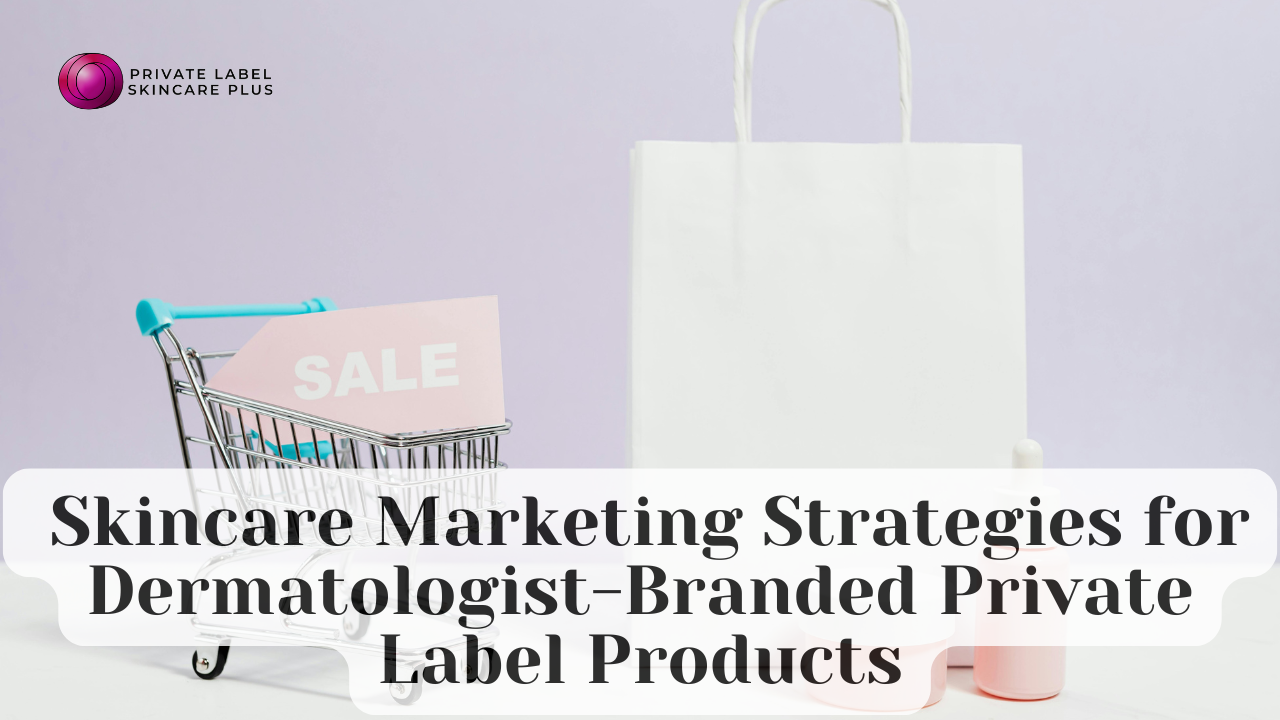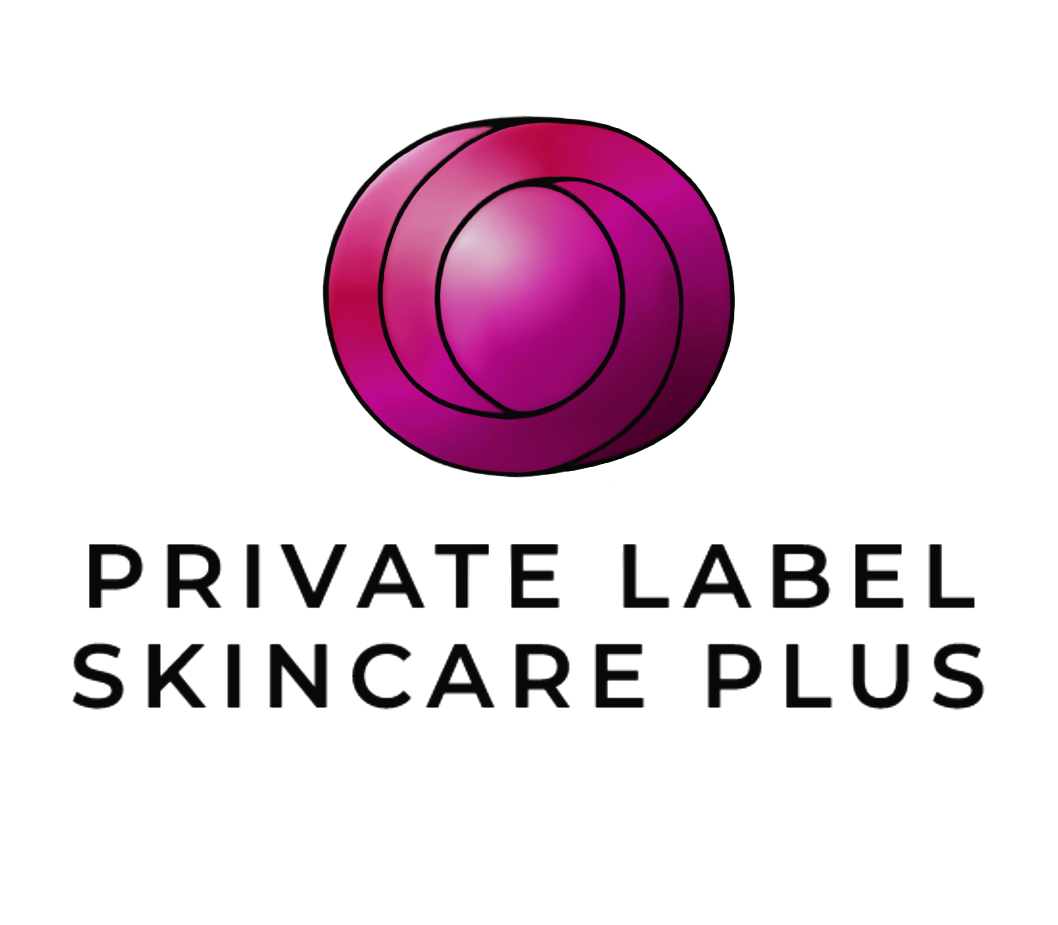In the past decade, the skincare industry has transformed significantly. Today’s consumer is more informed, more discerning, and more loyal to brands they identify with. Inside this constantly evolving space lies a premium niche of dermatologist-branded private label skincare. These products offer medical credibility, tailored specialties, and a personal touch that over-the-counter products cannot offer.
However, merely having a superior product in a crowded space is not enough. It takes smart, strategic marketing efforts to help private labels find success. Dermatologists need to have a skincare marketing strategy that builds trust, provides education, and shows customers that their dermatology practice is a solution to their skincare needs.
In this article, we will look at a few suggestions that apply to developed strategies for dermatologist-branded private label products. Each of these suggestions will help improve visibility, develop long-term brand loyalty, and there are even pro tips below each strategy!
10 Proven Skincare Marketing Strategies for Private Label Products
We have gathered some of the most potent private label skincare marketing to take your products to the next level. Let’s begin:
1. Build a Brand Identity
Your brand identity is more than a graphic, logo, or title. It’s the entirety of the emotional and visual experience your audience attaches to your skincare line. There are a few simpler ways to start right now:
- Develop a Clear Brand Story: Why are you starting this line? What skin challenges does it aim to solve? Personal storytelling, specific to your unique background as a dermatologist because it cultivates a personal and emotional connection.
- Visual Aesthetics: Keep colors, fonts, packaging design, and social media images consistent and relatable. Using a clean, clinical, yet approachable aesthetic works very well for consumers wanting an evidence-based skincare approach.
- Tone of Voice: Make sure your brand voice is trustworthy, caring, and informative across all touchpoints (website, packaging, social media, emails).
Pro Tip: In the case of skincare branding for dermatologists, always consider hiring a professional photographer and videographer to enhance the perception of quality and professionalism.
2. Align Your Products with Solutions, Not Just Ingredients
While skincare junkies are obsessed with hero ingredients (like peep overhauling 10% of your HA or 7% of your niacinamide), the average consumer is mainly focused on the results. Start with:
- Solution-Based Messaging: Think of it as never saying “Contains 2% Salicylic Acid,” but instead framing your products around the things they solve. “Say Goodbye to Hormonal Acne” is far more personal.
- Educational Content: Create blogs, videos, infographics, explaining skin issues and your products, which will build your authority, and a slow trust.
- Before & After: Use images of real, authentic transformations. Those kinds of imagery are extremely effective in skincare marketing and are persuasive for potential buyers.
Pro Tip: Always communicate the experience and expertise of dermatologists behind your product development – your unique selling position.
3. Create an Informative and Content-Rich Website
Your website is not just an e-commerce store. Treat it as your digital practice and brand identity. You can create your website with:
- Informative Blog: Topics can include skin care myths, skin care routines for various skin types, ingredient spotlight etc. Establish yourself as a thought leader.
- Interactive Elements: Skin quizzes, personalized skin routine builders, and virtual consultations will create engagement and lead to conversion.
- Proper Navigation: Your customers will expect to visualize products by their skin concerns, ingredient highlights, or routine steps.
- Prominent Trust elements: Certifications, dermatologist credentials, customers reviews, and results of their clinical studies.
Pro Tip: Your site should be mobile-optimized, fast, and SEO friendly. A better user experience can result in significantly more sales, especially when it comes to marketing dermatologist-branded products.
4. Use Social Proof and Testimonials
Social proof is huge in the beauty industry and will be great to leverage:
- Patient Testimonials: Ask your loyal patients to provide reviews and video testimonials.
- Before/After Features: Real results on your website and social media will create credibility and urgency.
- Influencer Affiliations: Use micro-influencers (especially for skincare lovers) that will genuinely recommend your products.
Pro Tip: Quality over quantity — it’s better to have a few meaningful, authentic testimonials than a ton of generic ones.
5. Educate via Social Media, Don’t Just Sell
Your social media channels should primarily educate and inspire, not just sell. Think of foolproof skincare marketing content ideas to start with, including:
- Skin condition explainers
- Ingredient breakdowns
- Skincare routine tips
- Customer Q&As
- Myth-busting
- Format Variety: Incorporate reels, carousels, stories, and lives to keep engagement high.
- Behind-the-Scenes: Share the making of your products, the packaging process, or the science behind clinically-backed formulations.
Pro Tip: Use storytelling to your advantage — showcase a customer’s skin journey instead of simply expounding on the product’s features.

6. Use Targeted Email Marketing Campaigns
Email marketing is still one of the highest ROI channels for skincare brands because you can leverage:
- Segmentation: You can segment your audience based on skin concerns, age, past purchases, and previous engagement.
- Personalized Recommendations: You are able to send tailored emails to individual users and suggest products they would like based on the user’s skincare journey.
- Educational Drip Campaigns: You can set-up an automated series like “Skincare 101,” “How to Build a Routine,” or Deep Dives into Ingredients.
Pro Tip: Include offers in your emails such as early access to launches, exclusive discounts, or skincare guides.
7. Implement Loyalty Program and Subscriptions
Retention is a lot cheaper than acquisition costs. Build long-term relationships with your customers by:
- Loyalty Points: You can reward repeat customers with loyalty points to redeem for either discounts or free products.
- Subscriptions: Allow customers the option of auto-replenishment for essential products like cleansers and moisturizers.
- Referrals: Encourage customers to refer people to you in exchange for rewards.
Pro Tip: Personalize communications for your loyalty program on the customers behalf to make them feel valued as well as recognized.
8. Hold Events and Webinars
In-person and virtual events can enhance your brand awareness and credibility. Here are a few dermatologist skincare marketing ideas to start with:
- Skin Health Webinars: Host educational virtual sessions discussing various skincare-related topics, and finish with a soft pitch of your products.
- Launch Parties: Invite patients/members to in-clinic or virtual launch events for product lines you’re introducing to your practice.
- Workshops: In collaboration with beauty influencers, host a skincare workshop.
Pro Tip: Record the webinar and repurpose the assets into blog posts, social posts, and emails.
9. Implement Paid Ads Strategically
Thinking strategically about ads can propel your brand forward, and here are some of the most trusted methods for skincare marketing:
- Google Ads: Take advantage of search terms like “best dermatologist skincare for acne.”
- Social Media Ads: Create ad campaigns based on your best customers’ lookalike audiences.
- Retargeting Campaigns: Remarket to users who have checked out your website but didn’t purchase Anything.
Pro Tip: Choose an ad creative focused on education or patient testimonials (we prefer testimonials) rather than hard selling, and have a better conversion.
10. Measure, Analyze, and Optimize Continuously
What gets measured gets improved. Here are a few of the metrics to track:
- Website conversion rates
- Customer lifetime value
- Email open rates and click through rates
- ROAS (Return on Ad Spend) for paid campaigns
- Feedback Loops: Customer feedback through surveys, and reviews on a routine basis will provide more insights into ways you can improve your products and messaging.
Pro Tip: Require a “test, learn & iterate” mindset — marketing is never static and consistent optimization gives you a competitive edge.
Conclusion
Formulating a successful dermatologist-branded skincare line is much more than just making an excellent product. It requires an intentional marketing effort to educate, empathize with and empower your target consumers. It requires crafting your branding, educational content, personalized experience, and advertising together so that you become a brand, not just an option.
Remember that your most valuable currency is trust. You have a special advantage in your profession as a dermatologist – now it’s about leveraging your expertise in a creative and authentic way.
We can help you build and implement a marketing strategy that is strong, effectual and results-based, no matter where you are in your career or process. Reach out to our skincare marketing professionals today and let us help you build a brand that your patients and clients can trust and adore.


